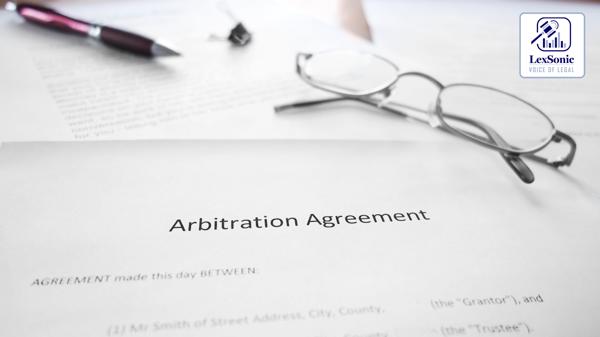Court Refers Dispute Between Parties to Arbitration Over Agreement to Sell.
05 August 2024
Arbitration Law >> Business & Commercial Law
In a recent ruling of Yuvraj Singh Bundhel & Another v/s M/s. Brillient Etoile Private Limited & Another, the Delhi High Court referred a dispute between two parties to arbitration under Section 11(6) of the Arbitration and Conciliation Act, 1996. The case stems from an Agreement To Sell executed on 5 February 2021, where the petitioners had sought to invoke the arbitration clause due to unpaid dues by the respondents.
Background of the Dispute:
The dispute arose out of an Agreement To Sell signed between the petitioners and the respondents. According to the petitioners, certain payments owed by the respondents were not made, prompting the petitioner to send a notice on 27 April 2024. When no resolution was forthcoming, a follow-up notice was sent on 26 May 2024, invoking the arbitration clause in the agreement.
The agreement included a dispute resolution clause (Clause 38) which provides for an initial attempt at amicable discussions. If unsuccessful, it allows the parties to resort to arbitration under the Arbitration and Conciliation Act, 1996. Despite attempts to resolve the matter, the parties were unable to agree on proceeding with arbitration, leading to the petition filed under Section 11(6) of the Act.

Arbitration Agreement Validated by Court:
The court was tasked with determining whether an arbitration agreement existed and whether the petition was filed within the statutory limit of three years, in line with Section 21 of the Act. After reviewing the agreement, the court confirmed the existence of an arbitration clause, thereby fulfilling the requirements for initiating arbitration proceedings.
Though Respondent 2 raised objections, stating that the dispute was between the petitioners and Respondent 1, and that they were being unnecessarily dragged into the matter, the court ruled that Respondent 2 could still participate in the arbitration proceedings. However, Respondent 2 was given the option to seek removal from the arbitration proceedings before the arbitral tribunal.
Key Legal Considerations:
The court also addressed an argument made by Respondent 1’s counsel, which focused on Clause 38.1 of the agreement, suggesting that the petitioners had not exhausted the provision for amicable settlement before invoking arbitration. However, the court dismissed this objection, citing Clause 38.2, which gives an overriding effect to arbitration proceedings, allowing the parties to directly proceed to arbitration without first attempting to settle disputes amicably.
Another argument made by Respondent 1’s counsel was that after issuing the Section 21 notice, the petitioners had requested a refund from the respondents, which, according to them, implied the petitioners did not intend to proceed with arbitration. The court, however, ruled that the request for a refund did not nullify the arbitration invocation. The issue, the court noted, would be for the arbitral tribunal to examine in due course.
Arbitration Process and Next Steps:
The court appointed Mr. Mukesh Gupta, a former Vice Chairman of the Central Administrative Tribunal, as the arbitrator for the dispute. The arbitration will be conducted under the rules of the Delhi International Arbitration Centre (DIAC), and the arbitrator’s fees will be in accordance with DIAC's prescribed schedule.
The court also mandated that the arbitrator file a disclosure under Section 12(2) of the 1996 Act within a week of assuming the reference. All questions of fact and law remain open for adjudication in the arbitral proceedings.
Conclusion:
This decision marks another step in the court’s ongoing efforts to ensure effective resolution of commercial disputes through arbitration, in line with the spirit of the Arbitration and Conciliation Act. The ruling reaffirms the principle that where an arbitration agreement exists, courts should generally respect the parties’ intention to resolve their disputes through arbitration, while limiting themselves to examining whether the arbitration agreement is valid and enforceable. The petition has been disposed of, and the dispute will now be adjudicated in arbitration, with all substantive matters to be resolved by the appointed arbitrator.
Arbitration and Conciliation Act, 1996
